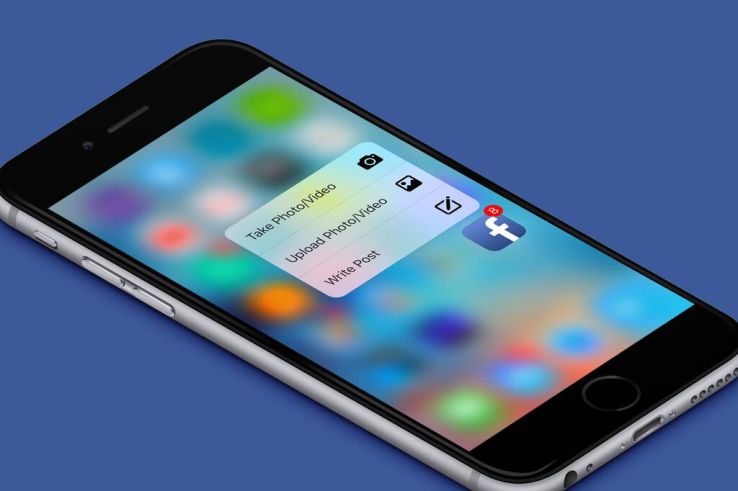Facebook Rolls Out Support For 3D Touch, Offering Shortcuts For Posting Statuses, Photos And Videos On New iPhones

An update to Facebook’s iOS application, which rolled out earlier this morning, now allows iPhone 6s and 6s Plus owners running the latest version of Apple’s mobile operating system to take advantage of the newly introduced 3D Touch feature to more quickly interact with the social network. Following the update, a hard press on the Facebook’s app icon will offer you a handful of shortcuts, including the ability to take or upload photos and videos or the ability to write your status update.
The addition is one of the more highly anticipated rollouts of third-party support for 3D Touch, a new user interaction that’s something of a spinoff of the similar Force Touch option on Apple Watch. A flagship feature on the new iPhones, 3D Touch is another gesture you can use with your device for faster access to apps.
It’s been likened by some as a right click for apps, as it’s a shortcut to things you can do within a mobile application, but also something of an optional step for power users rather than a new interaction everyone has to learn.
Initially, the 3D Touch option was available with a number of Apple’s default applications, like Mail, Music and Maps, for example, but has been steadily rolling out to third-party applications following the iPhone 6s and 6s Plus’s launch. Facebook-owned Instagram was among the first to offer 3D Touch support, but Facebook’s support means the feature now reaches one of the top mobile apps of all time – and one that reaches more of the app audience than any other, according to comScore.
Facebook’s other apps, including WhatsApp, Messenger, Moments, Groups and others, have yet to support the new interaction.
In addition to Facebook, other top apps now supporting 3D Touch include Pinterest, Jet, Twitter, Shazam, OpenTable, chat apps like Confide and FireChat, Medium, Dropbox, Evernote, and more.
The updated Facebook app is now live on iTunes. It doesn’t appear that Facebook has gained any other iPhone 6s or 6s Plus-only features in the new update, such as support for Live Photos, though that’ssomething in the works for later this year, Apple has said.Of course, users would never know that Facebook had rolled out 3D Touch today because of Facebook’s refusal to offer detailed app release notes – a plague in the industry, where developers no longer feel it’s necessary to inform users of the changes arriving in new versions of their applications.

Comments
Post a Comment